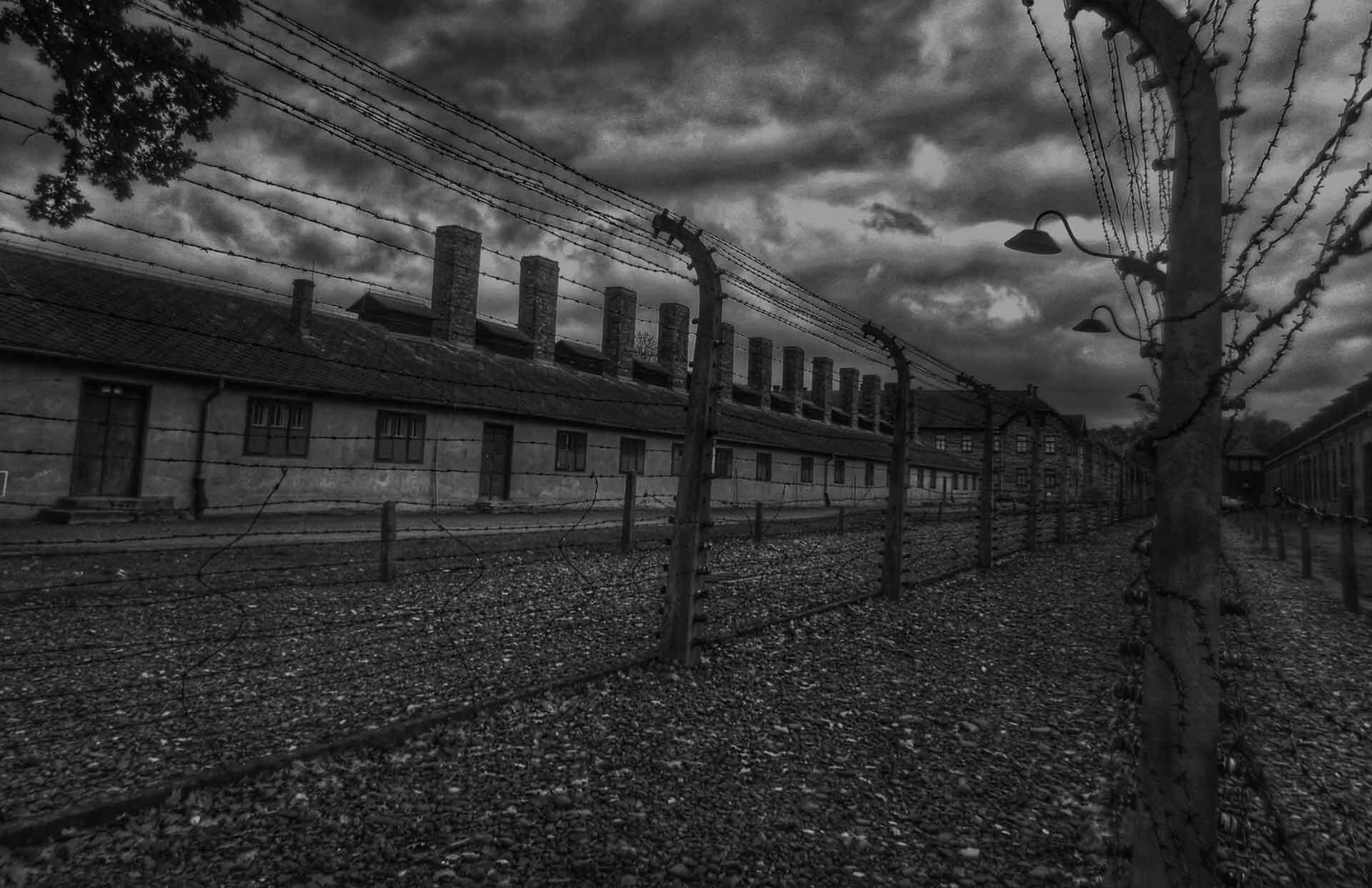Dr James Waller, from Keene State College in New Hampshire, gave a lecture at the University of Toronto during Holocaust Education Week about Germany’s infamous Paragraph 175 laws, used to persecute gay men during the Third Reich.
Gay men were not only persecuted by the Nazis, but were revictimized when liberating armies put the men they rescued from concentration camps back into prison, Dr James Waller told a Toronto lecture hall Nov 6.
Waller, the Cohen Chair of Holocaust and Genocide Studies at Keene State College in New Hampshire, was speaking during Holocaust Education Week. The Nazis, he said, rationalized their persecution of male homosexuals on the basis of their failure to reproduce for the Aryan race, their alleged propensity to “infect” youth, and their existence as a disloyal, subversive threat to the regime.
Lesbians were seen as less threatening and easier to cure. Lesbianism was “just a phase,” and these women could easily be brought over to the straight lifestyle and used as breeding stock, Waller said. There were only a handful of cases of lesbians imprisoned in concentration camps, to Waller’s knowledge, but even they were not imprisoned for being gay; they were convicted as asocial women or prostitutes.
The infamous Paragraph 175 pre-dated the Nazis, though they certainly used it to prosecute gay men under the Third Reich, Waller said. Originally added to Germany’s criminal code in 1871, it prohibited sexual acts between males and with animals — “An unnatural sex act committed between persons of male sex or by humans with animals is punishable by imprisonment; the loss of civil rights might also be imposed.”
Until 1933 the law was used sparingly, but as the Nazis rose to power, they began to arrest and imprison thousands of men for homosexual activity. Initially, the courts would take on a case only if it resembled a “coital act,” meaning anal penetration. In practice, Paragraph 175 was used more as blackmail — to create a climate of fear — than to convict men, Waller said.
Then, on Feb 23, 1933, the Nazis shut down gay gathering places, organizations and publications in an attempt to crack down on “public indecency.” A year later, the Gestapo started putting suspected gay men under surveillance — the infamous “pink list,” Waller said.
Then came the big change: on June 28, 1935, Paragraph 175 was expanded to prosecute not just coitus but a hug that lingered too long, a hand on a shoulder or a kiss on the cheek in greeting. “The mere thought was now enough,” Waller said.
Within the span of a few years, Germany went from being the home to a 1920s Berlin that had more gay bars than 1970s New York City, to more than 100,000 gay men arrested under the newly expanded Paragraph 175. The statistics Waller cites are grim. About half the men arrested served some sort of prison term as convicted homosexuals. Between 5,000 and 15,000 gay German men were sent to concentration camps; they are often referred to as “The 175ers.” An unknown number of gay men were institutionalized in mental hospitals, castrated or committed suicide.
Gay men imprisoned in concentration camps were often subjected to medical experiments, Waller said. Some were castrated; others were treated with testosterone to see if this would increase their “manliness” and turn them straight. This theory was tested by releasing the men into brothels, consisting of women also imprisoned in the concentration camps who were instructed to make sexual advances. The doctors would then observe how the men responded, to see if they were “cured,” Waller explained.
Even after the Allies liberated the concentration camps, Paragraph 175 haunted gay men. Astonishingly, Waller said, the armies that liberated the camps required those gay men imprisoned to serve out their sentences. Though the Allies discarded laws directly related to Nazi ideology, they maintained Paragraph 175 as a law capable of contributing to the rebuilding of a decent, functioning society, Waller said. These men had committed a crime that the Allies — and presumably “civilized countries” — still considered a crime.
Although West Germany decriminalized homosexual actions between men over the age of 21 years in 1969, it wasn’t until 1994 that a newly reunified Germany abolished Paragraph 175. It did so on May 17, a date chosen specifically because it was the 17th day of the fifth month, or 17-5.
In 2002, Germany pardoned men with Paragraph 175 convictions. However, this pardon extended only to those convicted under the Third Reich; men convicted after 1945 are still awaiting their pardon. On the 76th anniversary of Kristallnacht — the Night of Broken Glass, which saw anti-Jewish pogroms sweep through Germany and Austria on Nov 9 and 10, 1938 — it’s interesting to note, as Waller points out, that the German diplomat whose assassination ostensibly touched off the pogroms, Ernst vom Rath, was likely gay. Waller believes that the Nazis had been struggling with what to do with suspected homosexuals in their ranks. Ironically, many gay men were attracted to the Nazi movement in its infancy, he said, perhaps to further their career or perhaps because of the hyper-masculine image of the Nazi party.
With vom Rath’s assassination, the Nazis were able to kill two birds with one stone, Waller said. They could rid themselves of a potential embarrassment to the Nazi party and could turn vom Rath into a martyr to orchestrate the wave of anti-Semitic pogroms that many say marked the official beginning of the Holocaust.


